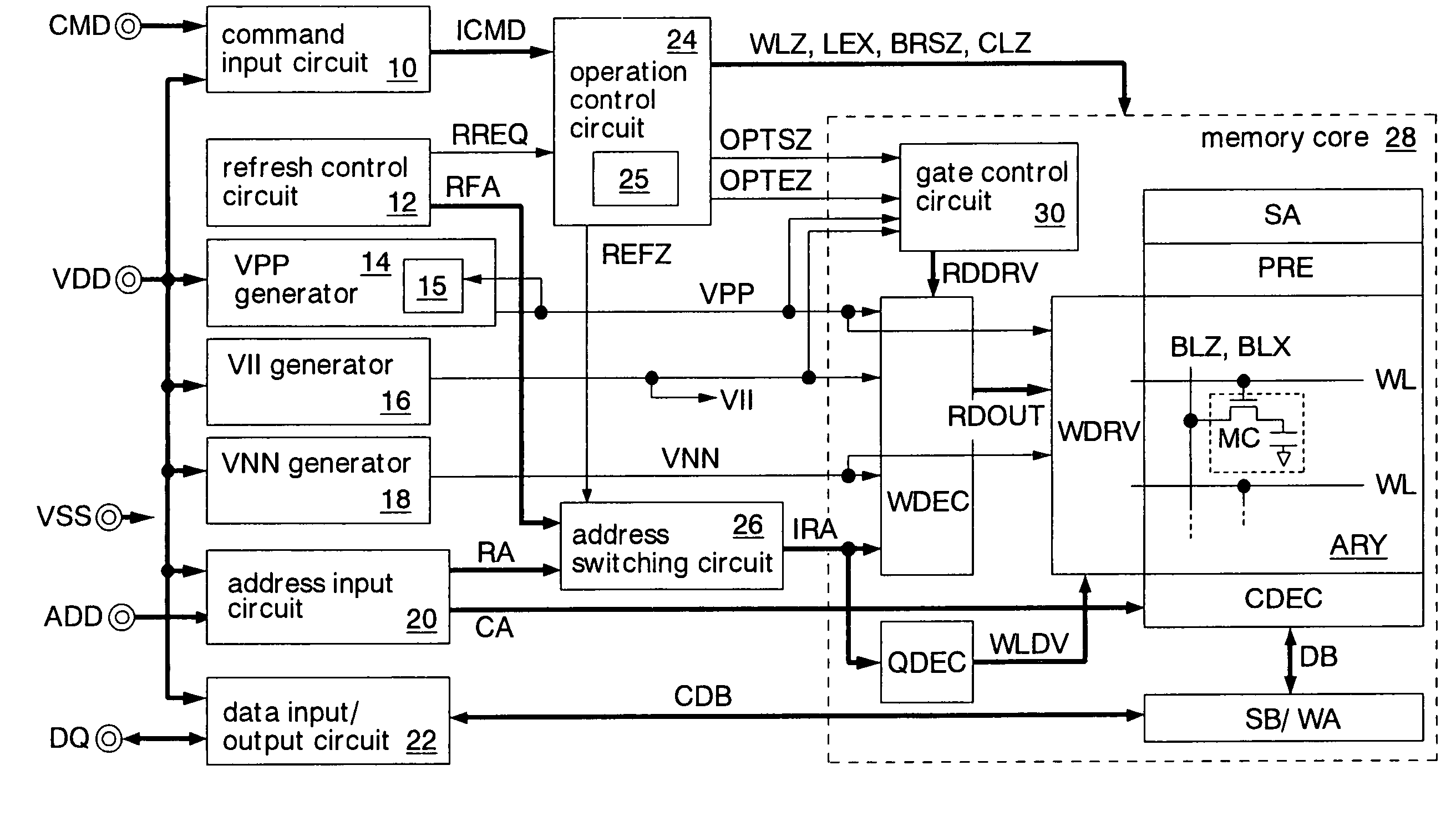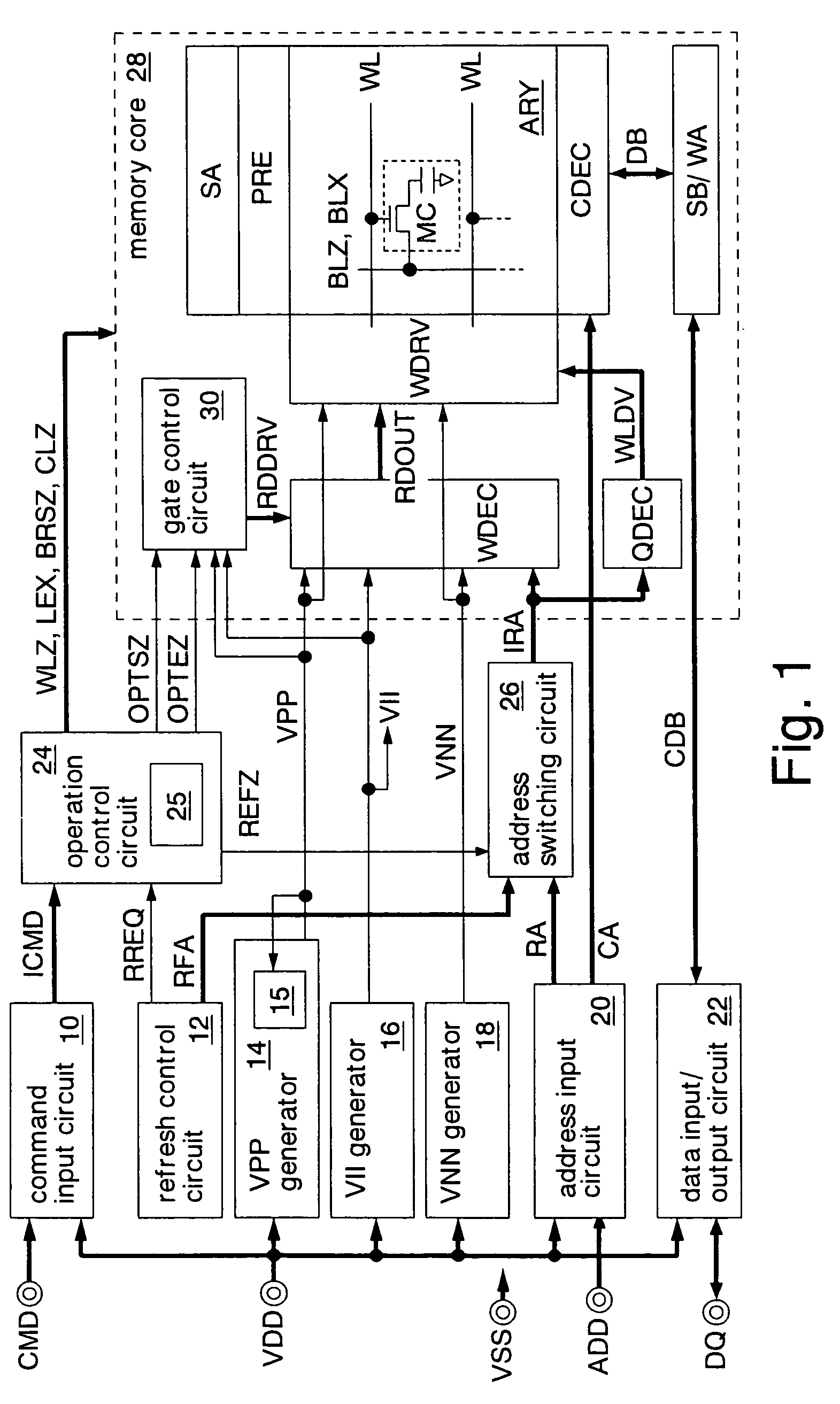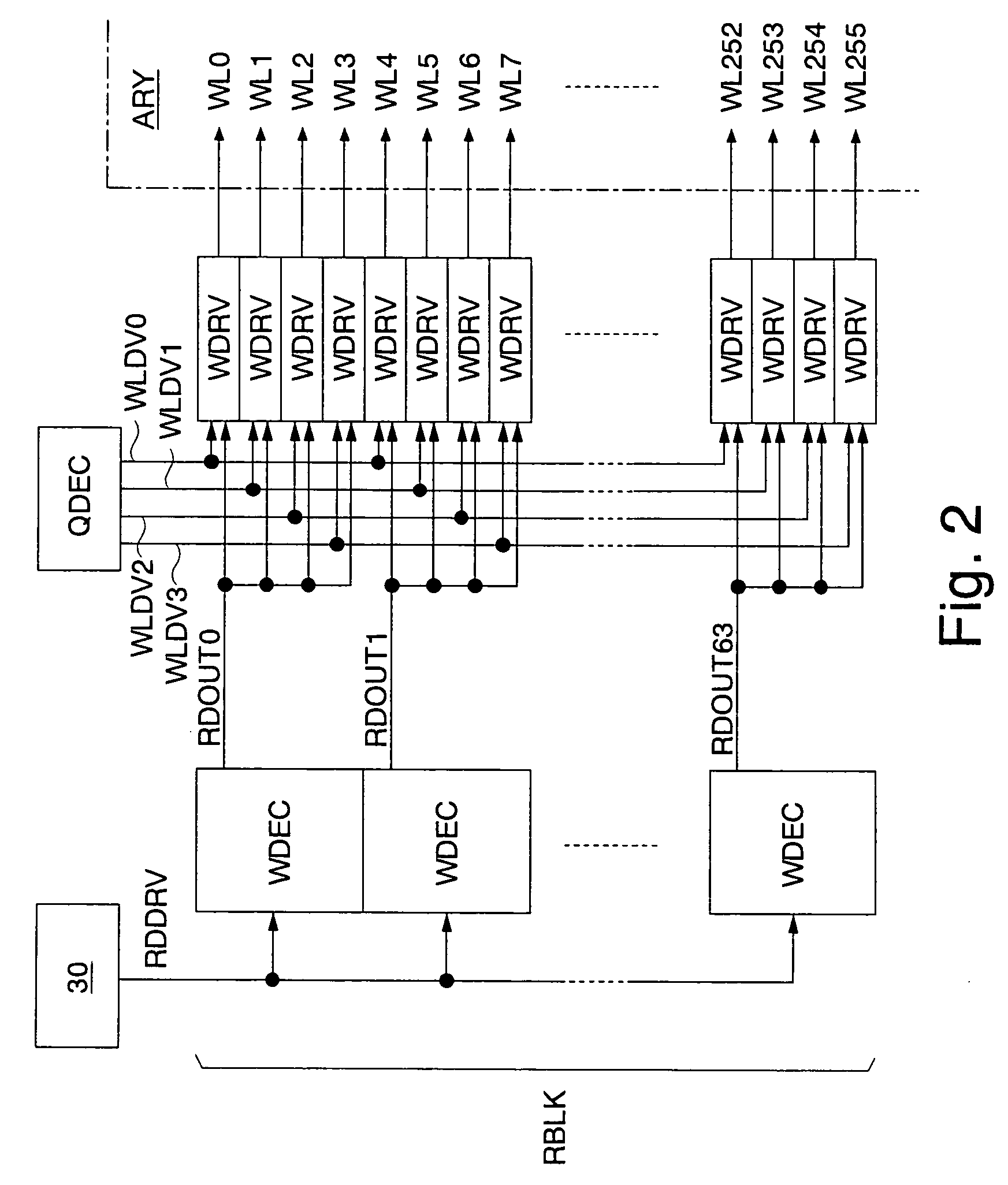Semiconductor memory
a technology of semiconductors and memory, applied in the field of semiconductor memory, can solve the problems of gate induced drain leakage (gidl) current, increase in standby current, serious problems, etc., and achieve the effect of reducing the gidl of transistors
- Summary
- Abstract
- Description
- Claims
- Application Information
AI Technical Summary
Benefits of technology
Problems solved by technology
Method used
Image
Examples
first embodiment
[0107]FIG. 4 shows an example where a refresh operation is performed during a standby period of the pseudo SRAM in the The standby periods STB in the diagram show periods in which no external command (read access request or write access command) is supplied, no refresh request occurs inside the pseudo SRAM, and the decoding units 32a of the word decoders WDEC shown in FIG. 3 are inactivated. The active period ACT is a period in which an external command is supplied or a refresh command occurs, and any of the decoding units 32a of the word decoders WDEC are activated.
[0108]In a standby period STB, the NOR circuits 30a shown in FIG. 3 receive the operation start signal OPTSZ and operation end signal OPTEZ of low level (VSS) (FIG. 4(a)), and output the operation signals OPTX of high level (VPP) (FIG. 4(b)). The operation signals OPTX of high level turn on the nMOS transistors 30b, so that the driving signals RDDRV are kept at the internal supply voltage VII (FIG. 4(c)). Since the outp...
second embodiment
[0138]The operation control circuit 24B outputs a self-refresh mode signal SREFX of low level in a self-refresh mode during which only a refresh operation is performed, responding to a refresh request signal RREQ generated by a refresh control circuit 12A and during which access requests are not accepted. The operation control circuit 24B outputs the self-refresh mode signal SREFX of high level in a normal operation mode during which the access requests (a read command, a write command, an auto-refresh command) are accepted. The other functions of the operation control circuit 24B are the same as those of the operation control circuit 24A of the second embodiment described above.
[0139]The gate control circuit 30B sets a row driving signal RDDRV (high-level voltage line) at a boost voltage VPP in the first period, i.e., active periods in a self-refresh mode and an entire period of the normal operation mode. The gate control circuit 30B sets the row driving signal RDDRV at an internal...
third embodiment
[0142]FIG. 10 shows an overview of operations of the DRAM in the Detailed description will be omitted of the same operations as in FIG. 4 and FIG. 5 described above. In this example, when receiving a self-refresh command during the normal operation mode, the DRAM shifts to the self-refresh mode, and when receiving a self-refresh releasing command during the self-refresh mode, it shifts to the normal operation mode.
[0143]In the normal operation mode, the self-refresh mode signal SREFX is kept at high level, and the operation signal OPTX is accordingly fixed to low level. Consequently, ON / OFF of the nMOS transistor 30b and the pMOS transistor 30c (switch circuit) shown in FIG. 9 is not switched over, and the high-level voltage line RDDRV is thus fixed to the boost voltage VPP. This eliminates power consumption for switching operations of the switch circuits 30b, 30c.
[0144]Specifically, the NOR circuit 30d does not drive the switch circuits 30b, 30c and thus consumes little power. In...
PUM
 Login to View More
Login to View More Abstract
Description
Claims
Application Information
 Login to View More
Login to View More - R&D
- Intellectual Property
- Life Sciences
- Materials
- Tech Scout
- Unparalleled Data Quality
- Higher Quality Content
- 60% Fewer Hallucinations
Browse by: Latest US Patents, China's latest patents, Technical Efficacy Thesaurus, Application Domain, Technology Topic, Popular Technical Reports.
© 2025 PatSnap. All rights reserved.Legal|Privacy policy|Modern Slavery Act Transparency Statement|Sitemap|About US| Contact US: help@patsnap.com



